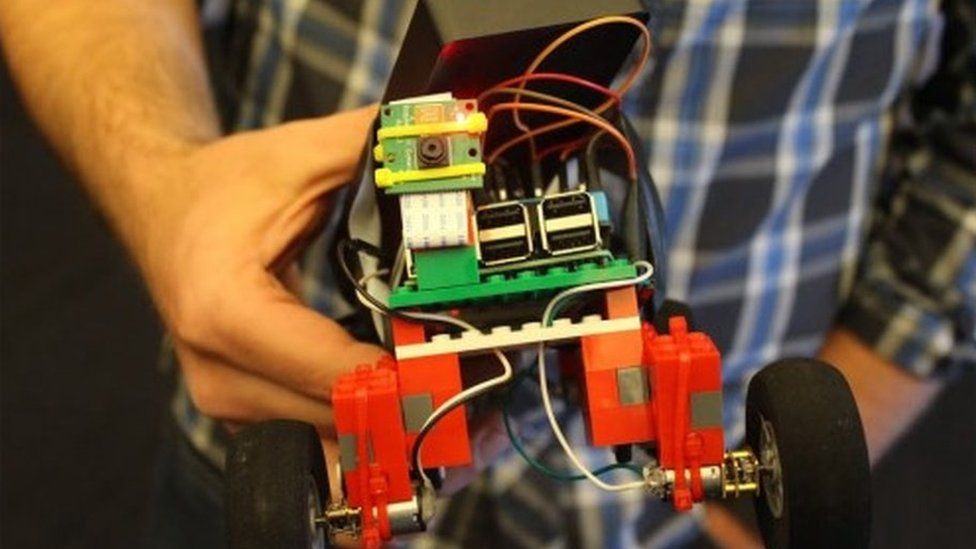Google brings AI to Raspberry Pi
- Published

Google is planning to bring artificial intelligence and machine learning tools to the Raspberry Pi.
The low-cost credit-card sized computer is widely used by schools and the maker community for programming devices.
Google has asked makers to complete a survey about what smart tools would be "most helpful".
And it suggests tools to aid face and emotion recognition, speech-to-text translation, natural language processing and sentiment analysis.
Google has previously developed a range of tools for machine learning, internet of things devices, wearables, robotics and home automation.
The Raspberry Pi Foundation said the new tools could enable makers "to build even more powerful projects".
"Google is going to arrive in style in 2017. The tech titan has exciting plans for the maker community," said the foundation in its blog.
A Google spokeswoman told the BBC: "We don't have any specifics to announce right now, but we're excited to keep sharing more open source machine learning tools with the community - stay tuned for more this year."
Eben Upton, founder of the Raspberry Pi Foundation, told the BBC: "It's fantastic to see Google getting closer to the maker community.
"I'm particularly excited about the prospect of connecting Raspberry Pi to some of the machine learning work coming out of Google DeepMind in London, allowing us to build smart devices that interact in the real world."
In 2015, the Raspberry Pi became the most popular British computer ever made.
More than 10 million have now been sold.
The Pi, which was originally manufactured in Wales, has been adopted by school children, programmers and inventors around the world.
It is also increasingly being used by the business community.
- Published22 December 2016
- Published29 February 2016